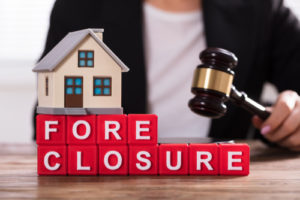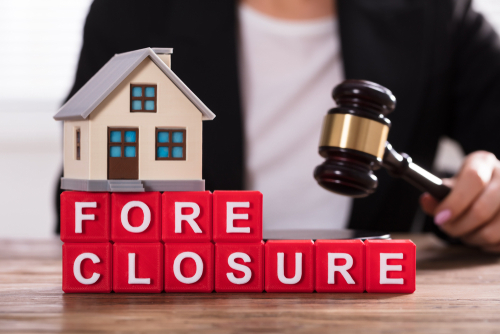 Although a federal appeals court recently took away one of the options for homeowners in bankruptcy, a number of good alternatives exist for distressed homeowners looking for refuge.
Although a federal appeals court recently took away one of the options for homeowners in bankruptcy, a number of good alternatives exist for distressed homeowners looking for refuge.
In Failla v. Citibank, the Eleventh Circuit Court of Appeals, which includes Florida, Georgia, and Alabama, ruled that homeowners who surrender their houses in bankruptcy cannot contest subsequent foreclosure proceedings in state court. In 2009, the Faillas defaulted on a mortgage on a house in Boca Raton, and in 2011 they filed bankruptcy. In Schedule A, the Faillas declared that the house was “underwater” and so, therefore, in the statement of intent, they stated that they wanted to surrender the house. Since the borrowers continued to live in the house, Citibank filed a motion to compel surrender. The district court granted that motion, in effect forcing the Faillas to abandon both the house and their opposition to the foreclosure.
The court ruled in favor of the moneylender. Specifically, Judge William Pryor wrote that debtors waive their challenge to adverse action, including foreclosure, when they express an intent to abandon the property, and that the bankruptcy court has the authority to force debtors to abandon their civil claims regarding such property.
Option One: Exempt and Retain
In a few cases, homeowners are not distressed when they file bankruptcy and actually have a considerable amount of equity in the property. Under the law and the applicable bankruptcy procedure in some states, this equity is nearly always exempt. Married joint filers may exempt up to $43,000 in home equity. That sounds like a lot of money. However, it may not always be enough to exempt all the equity and therefore prevent the trustee (person who oversees the bankruptcy on behalf of the judge) from filing a motion for a turnover that compels the owner to sell the house.
Assume David and Diane Debtor own a house that has a $200,000 fair market value, per the county tax appraiser’s records, and the mortgage has an unpaid principal balance of $150,000. Based on the initial look, it appears that the Debtors have more equity than they can protect under Title 44.
However, looks can be deceiving. Per the Bankruptcy Code, the Debtors must list an asset’s as-is cash value (a.k.a. “garage sale value”) on Schedule A or Schedule B. Regarding real property, the as-is cash value is much different from the fair market value. In fact, as a rule of thumb, a home investor will pay a maximum of 60 cents on the dollar for most houses.
Arguably, therefore, the Schedule A value of the Debtor’s home is $120,000, and instead of $50,000 of equity, they have $30,000 in negative equity. As a bonus, since they are not using their entire homestead exemption, they essentially have a $5,000 wildcard exemption that they can apply to otherwise nonexempt property, like cash in a savings account.
A word of caution: Valuing bankruptcy assets is a matter solely for experienced bankruptcy attorneys who know both the applicable law and the procedures (both formal and informal) of that particular bankruptcy judge.
Option Two: Negotiate
Many homeowners fall behind on payments because of short-term financial disruption, like a few months of unemployment or a serious illness. Unfortunately, sometimes these short-term disruptions become permanent situations. Bankruptcy may be the answer in both cases.
If the borrower fell behind on payments but currently has the wherewithal to make regular payments, a loan modification is often an option. These arrangements are normally not payment reduction plans. Instead, they are more like forbearances, because the lender essentially agrees to re-capitalize the delinquent amount into the unpaid principal balance. In plain English, the moneylender takes the past-due amount and spreads it out over the remaining payments.
The loan modification approval rate outside bankruptcy is quite low because moneylenders can deny applications on technical grounds, like one late trial payment or a few percentage points on a DTI (debt-to-income) ratio. But in bankruptcy, many courts refer these matters to specialized mediation, where the bank must negotiate in good faith. Once again in plain English, that means the moneylender must have a legitimate basis for the denial, and in most cases, there simply is no such basis.
If the borrower can no longer afford the payments, a bankruptcy attorney can often negotiate a foreclosure alternative with the moneylender, such as a:
- Short Sale: To move the property quickly, the bank agrees to a sale that is below fair market value and does not hold the borrower liable for the difference.
- Deed in Lieu of Foreclosure: This process is essentially a voluntary foreclosure. A deed in lieu looks a little better on a credit report than a foreclosure because it indicates that the borrower simply did not roll over and give up.
- Cash for Keys: If the other two fail, some banks will pay borrowers to clean the house when they vacate it, so at least the borrowers get something.
Other avoidance options, such as a bankruptcy refinance, may be available as well.
Option Three: Repayment
In most cases, when debtors file their voluntary petitions, an automatic stay goes into effect and remains in effect until the bankruptcy is closed. So, moneylenders cannot foreclose on loans or take any other adverse actions, unless there are unusual circumstances.
In Chapter 13 Bankruptcy, debtors have up to five years to bring secured debts current, and that includes home mortgages. The repayment is based on their income, and not on the take-it-or-leave-it terms that the moneylender proposes. The debt consolidation payment is often quite large, but most families can make sacrifices for a relatively short amount of time if there is a light at the end of the tunnel.
Homeowners facing foreclosure have some good alternatives, Call our experienced bankruptcy attorney in Florida at RYAN J. REALLY ATTORNEY AT LAW, PLLC today so we can help you financially in your time of need.


